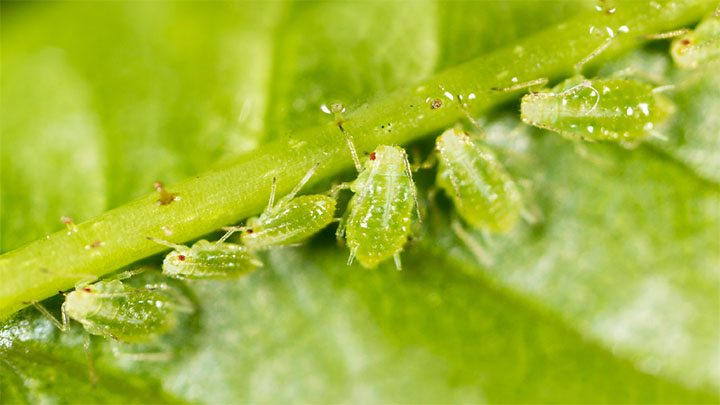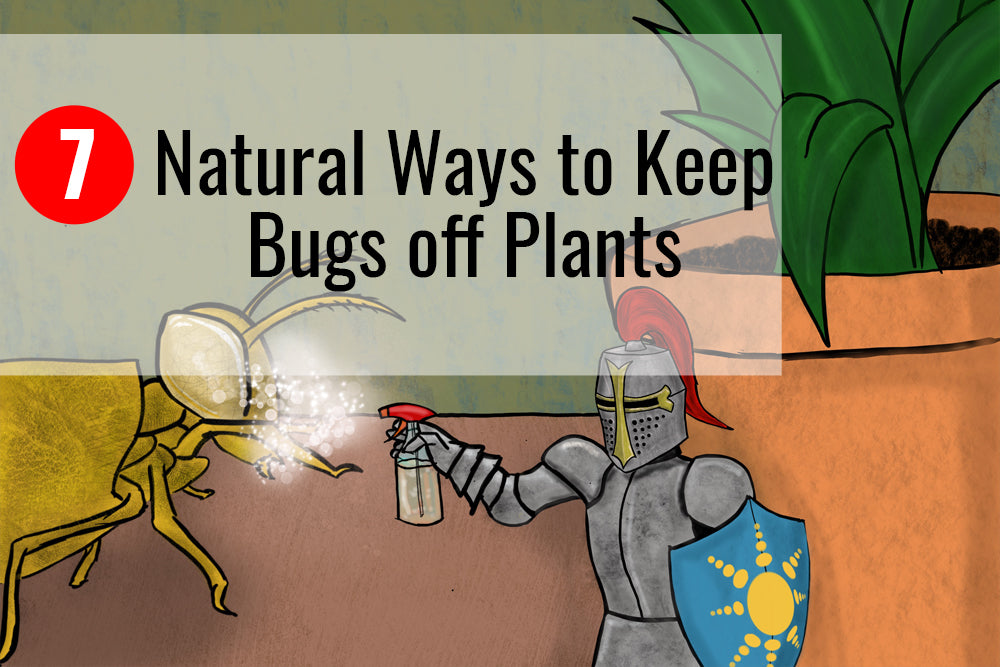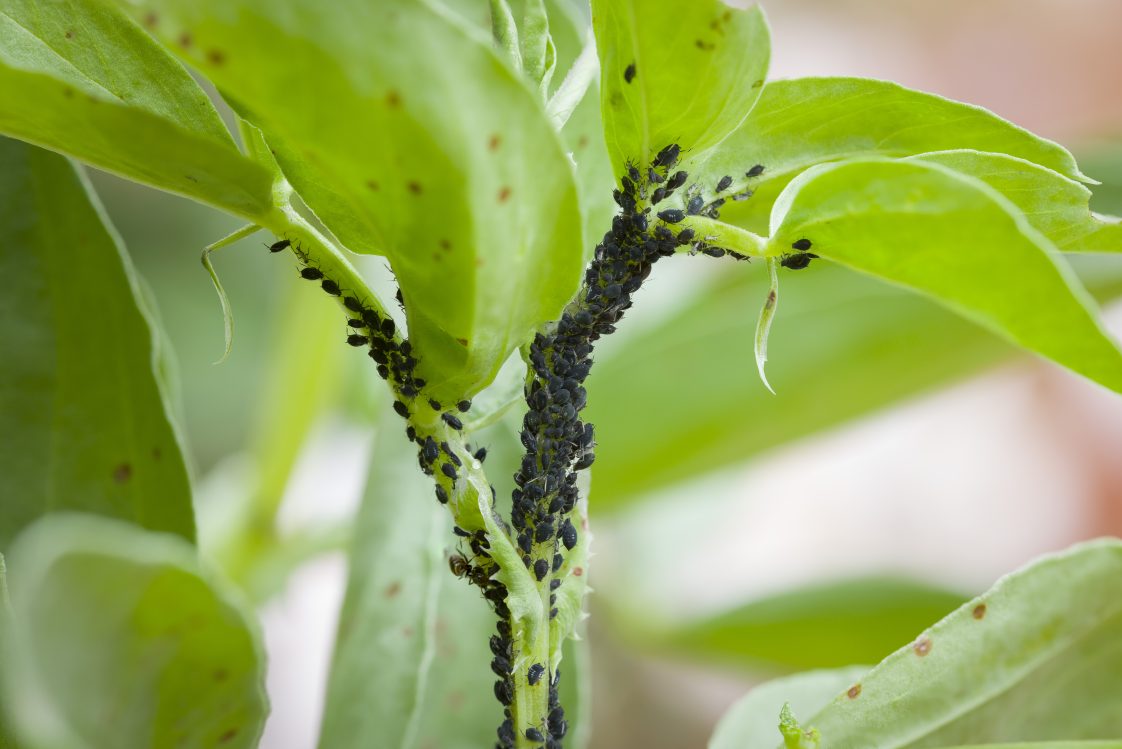As an Amazon Associate, I earn from qualifying purchases.
To stop bugs from eating outdoor plants, use natural repellents and encourage beneficial insects. Regularly inspect plants for pests and damage.
Bugs can wreak havoc on outdoor plants, making pest control essential for gardeners. Natural repellents like neem oil or garlic spray effectively deter insects without harming plants. Introducing beneficial insects such as ladybugs and predatory wasps can help control pest populations naturally.
Regularly inspecting plants for signs of damage or infestation allows for early intervention, preventing widespread issues. Maintaining plant health through proper watering, fertilization, and pruning also boosts plants’ natural defenses against pests. Combining these methods helps create a balanced, pest-resistant garden, ensuring vibrant and healthy outdoor plants.
Identify Common Pests
To protect your plants, first identify the pests. Knowing what insects are causing harm helps you choose the right treatment. Watch out for signs of infestation and learn about different harmful insects.
Signs Of Infestation
Check your plants regularly for signs of pests. Look for:
- Chewed leaves: Holes or missing parts of leaves.
- Sticky residue: A sticky substance on leaves or stems.
- Discolored spots: Yellow, brown, or black spots on leaves.
- Wilting: Plants that look droopy or unhealthy.
- Webbing: Thin, spider-like webs on plants.
Types Of Harmful Insects
Many insects can harm your plants. Here are some common ones:
| Insect | Appearance | Damage |
|---|---|---|
| Aphids | Small, green or black, soft-bodied | Yellowing leaves, sticky residue |
| Spider Mites | Tiny, red or black, eight-legged | Webbing, yellow spots, leaf drop |
| Caterpillars | Long, segmented, various colors | Holes in leaves, chewed edges |
| Whiteflies | Small, white, winged | Yellowing leaves, sticky residue |
| Japanese Beetles | Metallic green and brown, hard-bodied | Skeletonized leaves, holes |
:max_bytes(150000):strip_icc()/vegetable-garden-insect-pests-1402988-v1-6226b2b23e6e4642bed495ca7bae00bf.png)
Credit: www.thespruce.com
Natural Predators
One effective way to protect your outdoor plants is using natural predators. Natural predators help control pests without chemicals. They are environmentally friendly and cost-effective.
Beneficial Insects
Beneficial insects play a key role in pest control. They hunt and eat harmful bugs. These insects include ladybugs, lacewings, and parasitic wasps.
- Ladybugs: These insects eat aphids and other small pests.
- Lacewings: They help control caterpillars and aphids.
- Parasitic Wasps: These wasps lay eggs inside pests. The eggs hatch and eat the host pest.
Attracting Predators
To attract these beneficial insects, create a welcoming environment. Plant a variety of flowers and herbs to provide nectar and shelter.
Here are some plants that attract beneficial insects:
| Plant | Beneficial Insects Attracted |
|---|---|
| Marigold | Ladybugs |
| Dill | Lacewings |
| Fennel | Parasitic Wasps |
Provide water sources like shallow dishes with stones. Beneficial insects need water to survive. Avoid using pesticides. Pesticides can kill these helpful insects.
Keep your garden diverse and healthy. A diverse garden attracts more predators. Healthy plants resist pests better.
Homemade Remedies
Outdoor plants are often troubled by bugs. Homemade remedies can help. You can use everyday items to protect your plants. These solutions are safe and effective.
Soap Spray
Soap spray is a simple remedy. You can make it at home. It repels bugs and keeps plants healthy. Here is how to make it:
- Mix one tablespoon of liquid dish soap with one quart of water.
- Pour the mixture into a spray bottle.
- Shake the bottle well.
Spray the solution on the plants. Focus on the leaves and stems. The soap suffocates the bugs. Use the spray every few days.
Neem Oil Solution
Neem oil is a natural pesticide. It comes from the neem tree. This oil disrupts the life cycle of bugs. Here is a simple recipe:
- Mix two teaspoons of neem oil with one quart of water.
- Add a few drops of dish soap.
- Stir the mixture well.
Pour the solution into a spray bottle. Apply it to the plants. Neem oil works against many bugs. Use this solution weekly for best results.
Companion Planting
Companion planting is a smart way to protect your outdoor plants. By growing certain plants together, you can naturally repel bugs. This method reduces the need for harmful chemicals. Let’s explore how you can use companion planting to keep your garden bug-free.
Plants That Repel Bugs
Some plants naturally repel bugs. Here is a list of such plants:
- Marigolds: Repel aphids and mosquitoes.
- Lavender: Keeps moths, fleas, and flies away.
- Basil: Deters flies and mosquitoes.
- Rosemary: Repels cabbage moths and beetles.
- Mint: Keeps ants and aphids at bay.
Best Pairings
Pairing certain plants can enhance their bug-repelling abilities. Here are some effective combinations:
| Plant | Companion | Bug Repelled |
|---|---|---|
| Tomatoes | Basil | Flies and Mosquitoes |
| Cabbage | Rosemary | Cabbage Moths |
| Carrots | Marigolds | Aphids |
| Beans | Marigolds | Beetles |
| Peppers | Mint | Aphids |
By using these pairings, you can create a more resilient garden. The right combinations will keep bugs away and make your plants thrive.
Barriers And Traps
Protecting your outdoor plants from bugs can be challenging. One effective way is by using barriers and traps. These methods offer a physical and chemical-free solution. Let’s explore how to use them effectively.
Physical Barriers
Physical barriers are a great way to keep bugs away from your plants. They create a shield that bugs cannot cross. Here are some effective options:
- Garden Fleece: Cover your plants with garden fleece. It allows light and water but blocks bugs.
- Row Covers: Use row covers to protect larger areas. They are lightweight and easy to install.
- Netting: Netting can be draped over plants. It keeps larger pests like birds and squirrels away.
Effective Traps
Traps are another way to manage bugs. They attract and capture pests. Here are some types of traps:
| Trap Type | How It Works |
|---|---|
| Sticky Traps | Sticky traps catch bugs on adhesive surfaces. Place them near plants. |
| Pheromone Traps | Pheromone traps lure bugs using scents. They are effective for specific pests. |
| Beer Traps | Beer traps attract slugs and snails. They fall in and drown. |
Using these barriers and traps can help keep your garden healthy. They are simple and effective solutions for controlling pests.

Credit: www.dripworks.com
Regular Maintenance
Keeping bugs away from your outdoor plants involves regular maintenance. By following a few simple steps, you can protect your plants and keep them healthy. Regular maintenance includes routine inspections and proper watering techniques. Let’s dive into these essential practices.
Routine Inspections
Routine inspections are crucial for detecting pests early. Check your plants every few days. Look under leaves and along stems for any signs of bugs. You might see holes in leaves or sticky residue. These are signs that pests are present. Use a magnifying glass if needed.
- Inspect plants for pests every few days.
- Look for holes in leaves.
- Check under leaves and along stems.
- Use a magnifying glass for small pests.
Proper Watering Techniques
Using proper watering techniques helps keep plants strong and resistant to pests. Water your plants early in the morning. This allows leaves to dry out during the day. Wet leaves attract bugs and diseases. Ensure the soil is moist but not soggy.
- Water plants early in the morning.
- Ensure leaves dry out during the day.
- Keep soil moist but not soggy.
Consider using a drip irrigation system. This delivers water directly to the roots. It keeps leaves dry and reduces the chance of bugs.
| Watering Method | Benefits |
|---|---|
| Early Morning Watering | Keeps leaves dry, reduces pests. |
| Drip Irrigation | Waters roots directly, keeps leaves dry. |
Chemical Solutions
Using chemical solutions can effectively stop bugs from eating outdoor plants. They work quickly and are easy to apply. But, ensure you choose safe options and follow the right application methods.
Safe Pesticides
Not all pesticides are harmful to the environment. Some are designed to target pests without damaging plants or beneficial insects. Here are some safe pesticides:
- Neem Oil: Derived from neem tree seeds. It repels and kills various insects.
- Insecticidal Soap: Made from potassium salts of fatty acids. It works by breaking down the bug’s outer shell.
- Diatomaceous Earth: A powder made from fossilized algae. It dehydrates and kills bugs.
Application Tips
Proper application ensures that pesticides work effectively. Here are some tips:
- Read the Label: Follow the instructions on the pesticide label carefully.
- Timing: Apply pesticides in the early morning or late evening. Bugs are less active, and beneficial insects are not around.
- Target the Right Areas: Focus on the underside of leaves and plant stems. Bugs often hide in these spots.
- Use the Right Amount: More is not always better. Use the recommended amount to avoid harming your plants.
- Protect Yourself: Wear gloves and a mask while applying pesticides.
Following these tips will help keep your plants safe and healthy.

Credit: sunnydazedecor.com
Healthy Soil Practices
Healthy soil is the foundation for robust plants. By focusing on soil health, you can reduce pest problems. Strong plants can resist pests better. Below are key practices to maintain healthy soil.
Soil Amendments
Soil amendments improve soil structure and fertility. They help plants grow strong and healthy. Use organic materials like compost, peat moss, or aged manure. These materials add nutrients and improve soil texture.
| Soil Amendment | Benefits |
|---|---|
| Compost | Adds nutrients and improves soil structure |
| Peat Moss | Improves soil aeration and moisture retention |
| Aged Manure | Provides essential nutrients and improves soil texture |
Fertilization
Fertilization is essential for plant health. Use natural fertilizers to avoid chemical buildup. Organic fertilizers release nutrients slowly. This helps plants absorb nutrients better.
- Bone Meal: Rich in phosphorus. Promotes root growth.
- Blood Meal: High in nitrogen. Encourages leaf growth.
- Fish Emulsion: Balanced nutrients. Enhances overall plant health.
- Test soil pH before fertilizing.
- Apply fertilizer based on plant needs.
- Water plants after fertilizing.
Healthy soil practices lead to fewer pests. Strong plants can resist bugs better. Focus on soil health for thriving outdoor plants.
Frequently Asked Questions
How Can I Naturally Repel Bugs From Plants?
Use neem oil, garlic spray, or insecticidal soap. These natural remedies help deter common garden pests effectively.
What Are Common Bugs That Eat Outdoor Plants?
Aphids, caterpillars, and beetles are common culprits. They can cause significant damage to your outdoor plants.
Can Companion Planting Prevent Bugs?
Yes, planting marigolds, basil, or mint can deter pests. Companion planting is an effective organic method to protect plants.
What Is The Best Time To Spray Insecticides?
Spray insecticides early in the morning or late afternoon. This ensures effectiveness and reduces harm to beneficial insects.
Conclusion
Keeping outdoor plants healthy and bug-free is essential for a thriving garden. Use natural repellents and proper maintenance. Regularly inspect plants and remove pests manually if needed. Implementing these simple steps can ensure your outdoor plants remain vibrant and pest-free throughout the growing season.
Happy gardening!

